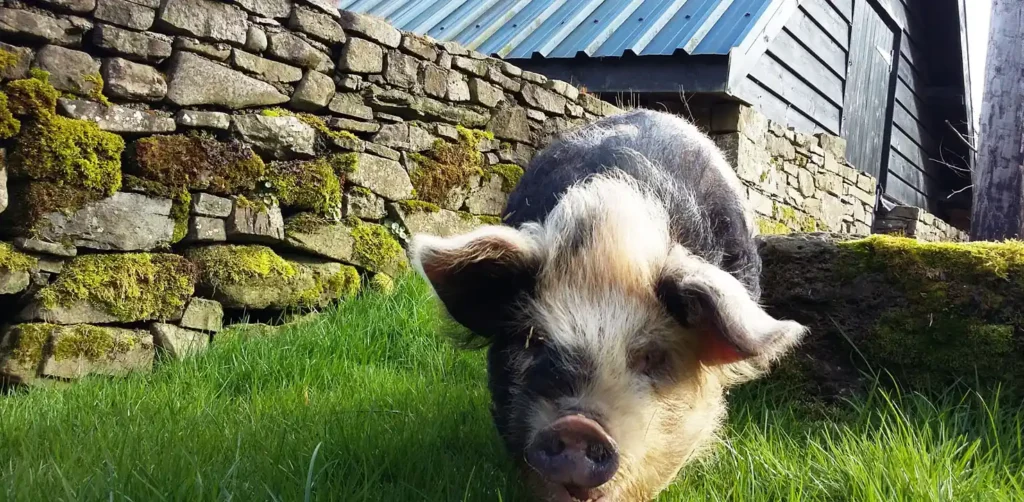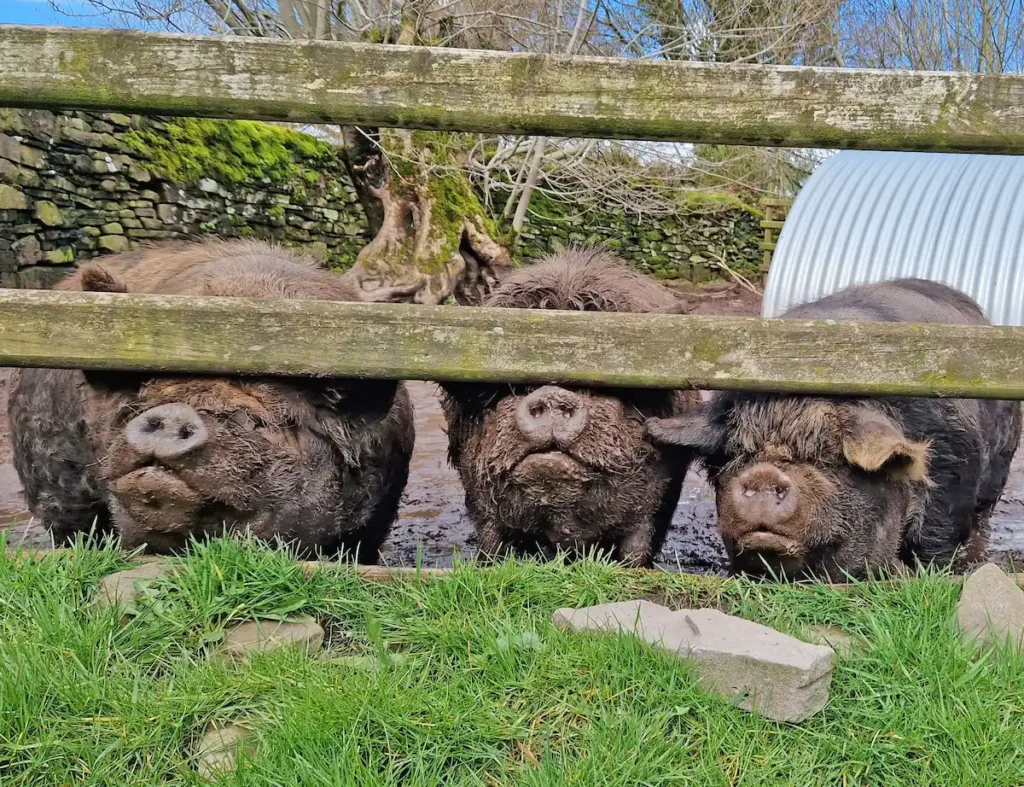Why are Kunekune pigs such great pets for pig lovers in the UK?
In the UK, KuneKune pigs have become beloved beyond just being a cute pig breed. They make excellent pets and therapy animals if you have the right set-up to keep them happy and healthy.
Origins & Characteristics
Originally from New Zealand, the KuneKune is a small, hairy, endearing breed, named from the Māori for “fat and round.” Distinguished by their friendly, docile nature, they’re the smallest domesticated pig breed. They feed enjoyably on grass, brambles, and scrub, making them ideal for pasture-based habitat. They make excellent land clearance workers and are frequently included in conservation grazing projects.
Conservation Grazing
A standout example in the UK is in Gunnersbury Park, west London, where two KuneKune pigs nicknamed Salt and Pepper are being used for conservation grazing. Housed in a movable pen, they’re helping clear brambles and maintain scrubland—an eco-friendly alternative to machinery that aids biodiversity and reduces maintenance costs.
Pets & Therapy Animals
KuneKunes are increasingly popular as pets due to their gentle and intelligent temperament. They form strong bonds with humans but it is really important to keep more than one as they are gregarious in nature and can become depressed company of other pigs. However, it is safest to keep pigs together from the same litter if possible, as group rivalries while the pecking order is established can result in injuries.
They also appear in animal-assisted therapy settings. Their calm temperament makes them effective emotional support animals, helping reduce anxiety and encouraging therapeutic interactions.

When choosing a pig as a pet, a few breeds stand out for their temperament, size, and suitability for domestic life. Here’s a quick comparison of the best pig breeds commonly kept as pets, including their pros and cons:
Top Pig Breeds for Pets
1. KuneKune Pigs
- Temperament: Extremely friendly, calm, and social.
- Size: Medium; around 45–115 kg as adults.
- Pros:
- Very gentle and intelligent.
- Naturally graze on grass (less rooting behavior).
- Less destructive than other pigs.
- Cons:
- Still quite large—require outdoor space and fencing.
- Slow-growing, need long-term commitment.

2. Miniature Pigs / Mini Pigs / Pot-bellied Pigs
- Temperament: Curious, clever, can be affectionate.
- Size: Despite the name, many grow to 45–90 kg.
- Pros:
- Trainable—can learn tricks, litter train, etc.
- Popular indoor-outdoor pet option.
- Cons:
- Not truly “mini” unless properly bred (many are mis-sold), and even true bred ones can grow fairly large.
- Can become territorial or aggressive if not socialized.
- Require lots of mental stimulation.

3. Juliana Pigs / Micro Pigs
- Temperament: Lively, energetic, often dog-like.
- Size: Smaller side of pet p18–36 kg.
- Pros:
- Smaller size (when pure).
- Spotted coats make them distinctive.
- Cons:
- Hard to find purebred Juliana pigs.
- Need strong socialization and training.


- No pig stays “teacup” size. Any ad for a pig under 18 kgs full-grown is likely a scam.
- Zoning laws & permits: Check your local regulations before getting a pig. They are a notifiable breed and cannot be kept without proper licensing.
- Space requirements: Even small pigs need outdoor access, wallowing space, and secure fencing.
- Veterinary care: Find a vet experienced with pigs before committing.
- Social animals: Pigs need companionship, either from humans and ideally other pigs as well.
 Best Overall Pet Pig for Most People?
Best Overall Pet Pig for Most People?

KuneKune pigs typically live 12 to 20 years, with good care.
Factors That Influence Their Lifespan:

- Proper Diet: Mainly grass, with controlled grain feed; they’re prone to obesity if overfed.
- Space & Enrichment: Room to roam and mental stimulation reduce stress and behavioral issues.
- Companionship: They’re highly social—keeping at least two pigs prevents loneliness and boredom.
- Veterinary Care: Regular vaccinations, parasite control, hoof trimming, and dental checks extend life.
- Shelter: Protection from cold, wet weather and hot sun is essential.

- Obesity: KuneKunes love food and easily gain too much weight, leading to joint, heart, and liver problems.
- Poor Hoof Care: If not trimmed, hooves can overgrow and cause mobility issues.
- Loneliness: Isolated pigs can become depressed or destructive.
- Inadequate fencing/shelter: Escaping or exposure can lead to injury or illness.
Typical Milestones:
- Maturity: Around 12 months old.
- Full size: Reached by 2–3 years.
- Senior age: Around 12–14 years old, but many live to 15–18+ with attentive care.
And if you are looking for a pet pig, do check out your local animal rescues and rehome where possible. Every Pig is a good source that seeks to rehome and covers the UK. The RSPCA are also a great place to contact and can also help with health and welfare concerns.
You can meet some lovely, well cared-for KuneKune pigs on Good Day Out experiences days. Aimed at pig-loving adults, their tiny group sessions really allow you to get to know their pet girls, and you’ll enjoy a scenic walk along meadows and a paddle in the stream. Set in a beautiful valley in the Bannau Brycheiniog / Brecon Beacons National Park, this unique experience is charming and funny, with the pigs also enjoying every moment.

